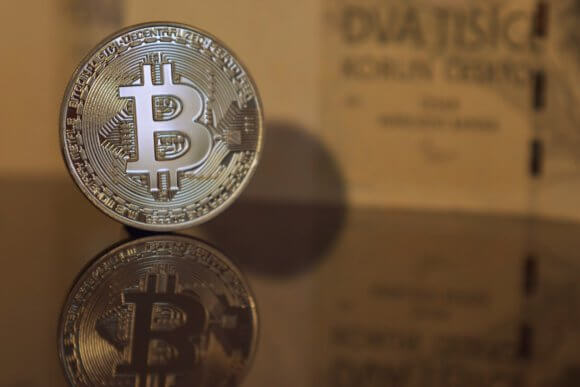Cryptocurrency is the latest investing mania according to some financial analysts. The online currency has exploded in popularity over the last few years amid predictions digital currencies will one day replace our current system of checks, cards and cash.
Terms of Reference
A cryptocurrency is a type of digital token that relies on cryptography for chaining together digital signatures of token transfers, peer-to-peer networking and decentralization.
A blockchain is a digitized, decentralized, public ledger of all cryptocurrency transactions. Constantly growing as ‘completed’ blocks (the most recent transactions) are recorded and added to it in chronological order; it allows market participants to keep track of digital currency transactions without central recordkeeping. Each node (a computer connected to the network) gets a copy of the blockchain, which is downloaded automatically.
Cryptocurrency – How did it all start?
Digital currency
The first example of mobile payments came in 1997 when Coca Cola introduced a limited number of vending machines where the customer could make a mobile purchase. The customer would send a text to the vending machine to setup payment and the machine would then vend their product. Mobile banking first appeared in 1997 as well through the Merita Bank. It accepted text messages for making bank account transactions.
The QQ coins score as another example of a type of commodity-based digital currency used on Tencent QQ’s messaging platform and emerged in early 2005. QQ coins were so effective in China that they were said to have had a destabilizing effect on the Chinese Yuan currency due to speculation.
Recent interest in cryptocurrencies has prompted renewed interest in digital currencies, with bitcoin, introduced in 2008, becoming the most widely used and accepted digital currency. Bitcoin is considered to be the trendsetter, ushering in a wave of cryptocurrencies built on decentralized peer-to-peer network, it’s become the de facto standard for cryptocurrencies. Bitcoin was designed to act as a secure peer to peer decentralized payment system. The currencies inspired by Bitcoin are collectively called altcoins and have tried to present themselves as modified or improved versions of Bitcoin according to Investopedia.
The so called altcoins
There are plenty of examples out there engaged in trade such as: Ethereum, Litecoin (LTC), Zcash (ZEC), Dash, Ripple (XRP), Monero (XMR), still Bitcoin continues to lead the pack of cryptocurrencies, in terms of market capitalization, user base and popularity.
Briefly, cryptocurrencies allow electronic money systems to be decentralized; systems include:
Bitcoin – the first cryptocurrency, a peer-to-peer electronic monetary system based on cryptography.
Bitcoin Cash – a 2017 fork of bitcoin; main differences from bitcoin are larger blocks, different difficulty adjustment algorithm, and lack of Segregated Witness.
Ethereum – an open-source, public, blockchain based on distributed computing platform featuring smart contract (scripting) functionality. Launched in 2015, Ethereum is a decentralized software platform that enables Smart Contracts and Distributed Applications (ĐApps) to be built and run without any downtime, fraud, control or interference from a third party. Ethereum (ETH) has a market capitalization of $4.46 billion, second after Bitcoin among all cryptocurrencies.
Ripple – a monetary system based on trust networks, is a real-time global settlement network that offers instant, certain and low-cost international payments.
Litecoin – originally based on the bitcoin protocol, intended to improve upon its alleged inefficiencies. Faster block times and different mining algorithm compared to bitcoin.
Zcash – a decentralized and open-source cryptocurrency launched in the latter part of 2016, looks promising. “If Bitcoin is like http for money, Zcash is https,” is how Zcash defines itself. Zcash offers privacy and selective transparency of transactions
Dash – originally based on the bitcoin protocol, it offers the option of instant and private transactions. It is a Decentralized Autonomous Organization. Dash offers more anonymity as it works on a decentralized mastercode network that makes transactions almost untraceably.
Monero – a secure, private and untraceable currency. This open source cryptocurrency was launched in April 2014 and soon spiked great interest among the cryptography community and enthusiasts. The development of this cryptocurrency is completely donation-based and community-driven
Main difference between Bitcoin and Ethereum
Bitcoin is a crypto-currency, but Ethereum is actually a platform, which means it has tremendous potential. Ethereum relates “blocks,” or records of transactions, more quickly than Bitcoin and some of its users believe that this efficiency makes it easier to use. At this point, both are volatile and it is difficult to predict where it will go.
According to a recent study, although Ethereum and Bitcoin may have similar aspects the two currencies are very different in regards to the use and future of the two digital assets. While the future of Ethereum is uncertain there is an attractive investment opportunity to capture the potential gains of the technology. As for Bitcoin, there is still room for growth and value, but it will not be at the volatile rate it experienced in the beginning years.
Is the investment risk-free?
Like all investments, there will be risks involved. Invest wisely in the popular cryptocurrencies that are backed by a strong technology with a future. Given the incredible opportunity for decentralization, blockchain technology offers the ability to create businesses and operations that are both flexible and secure. Whether companies will succeed in deploying blockchain technology to create products and services consumers will trust and adopt remains to be seen. Nevertheless, this is definitely a space investors should watch. The demand for blockchain-based services is on the rise, and the technology is maturing and advancing at a rapid pace.
In order to choose an investment strategy, always do your homework/research. Check Before You Invest. Being an informed investor is one of your best defenses against failure.

